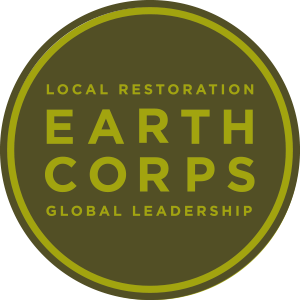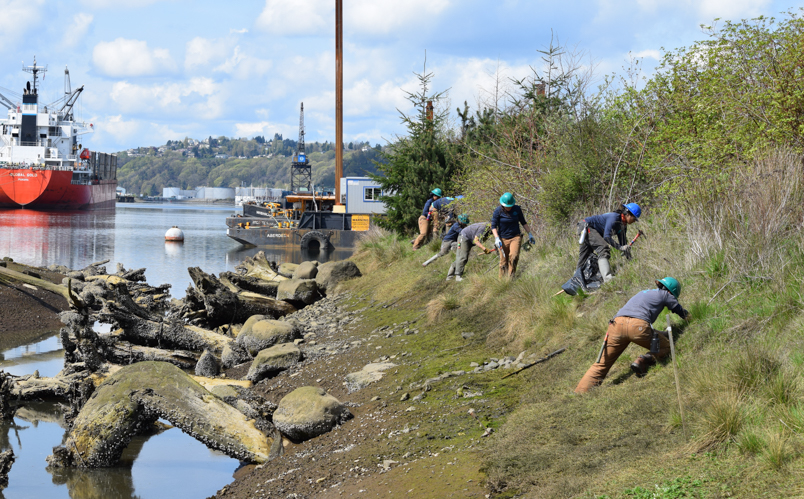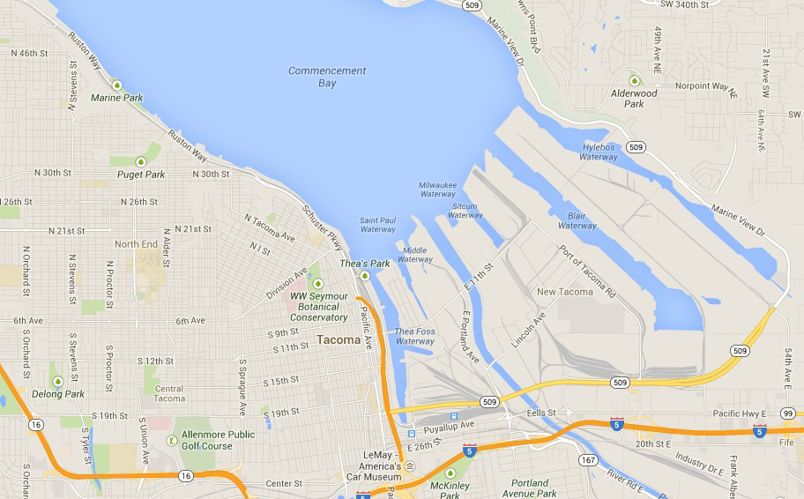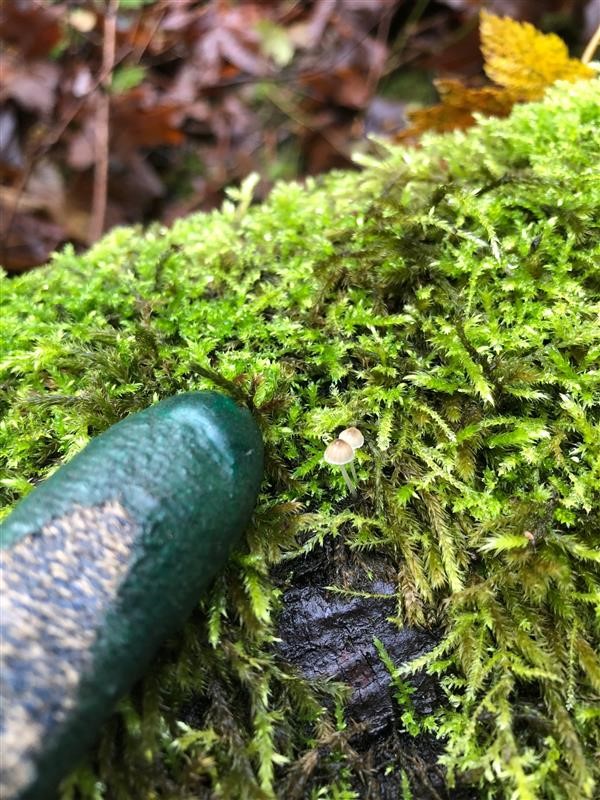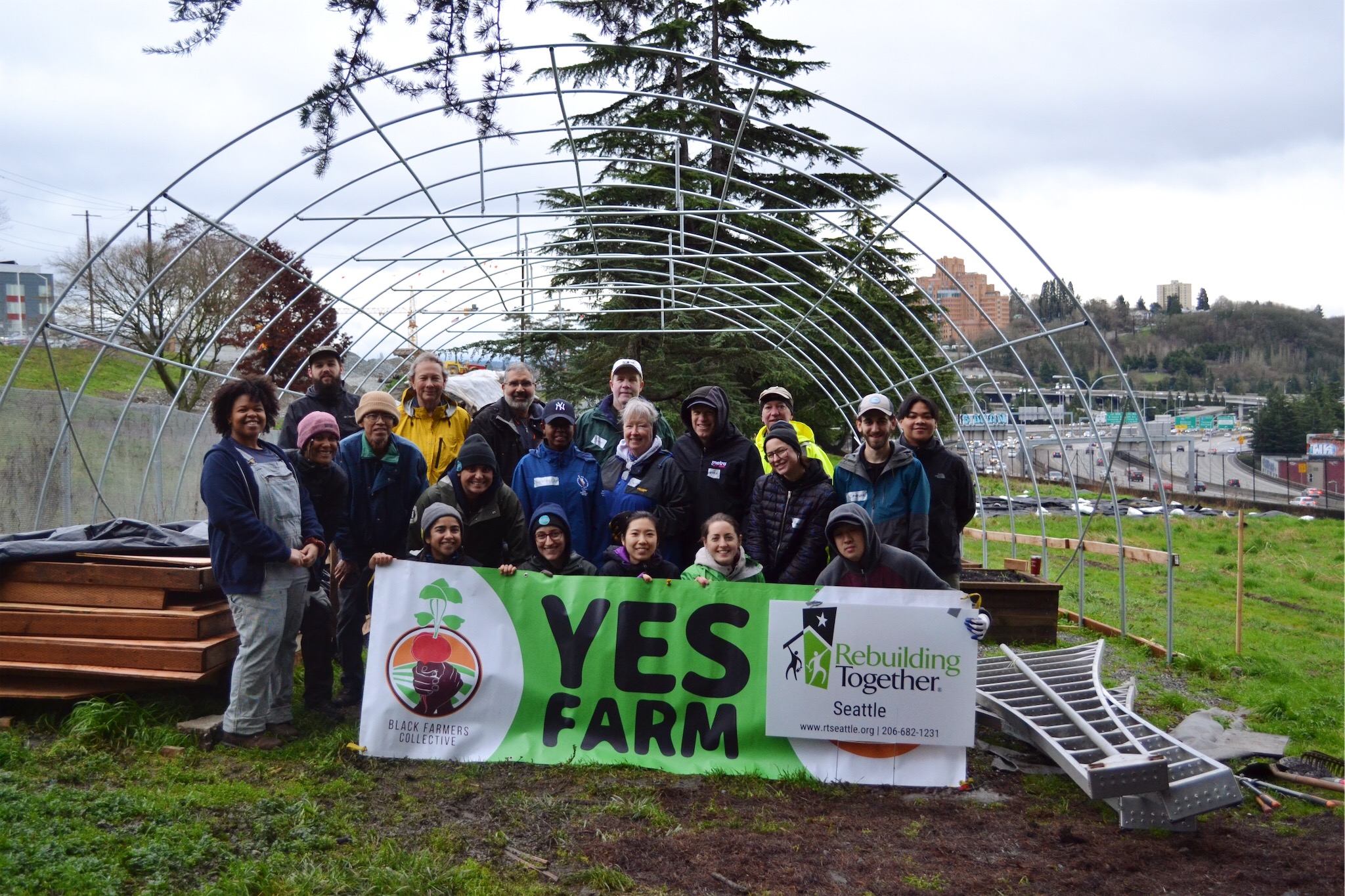Commencement Bay Stewardship Collaborative
Since 2014, EarthCorps has been a partner of an innovative experiment in community-based restoration taking place in the coastal area and surrounding watersheds of Commencement Bay in the Tacoma region.
Since 1998, the Commencement Bay Trustees have worked to restore over 300 acres of habitat throughout the Puyallup River Watershed, transforming it from one of the most polluted spots in the country to a national model for recovery.
The Commencement Bay Trustees developed the Commencement Bay Stewardship Collaborative to ensure that the salmon and birds that depend on the restored habitat can grow and thrive. In 2014, the Trustees entrusted the ongoing Commencement Bay stewardship of 15 individual sites to EarthCorps.
The Trustees include National Oceanic and Atmospheric Administration, US Fish and Wildlife Service, Puyallup Tribe of Indians, Muckleshoot Indian Tribe, Washington Department of Ecology, Washington Department of Fish and Wildlife, and Washington Department of Natural Resources. Read more
Mycoremediation Pilot Program
Mycoremediation is the use of mushrooms to help improve soil quality (and, in turn, water quality) by degrading and removing chemical contaminants commonly found in polluted surface water runoff. The benefits of mycoremediation for water quality have been well-demonstrated in a lab setting. However, incorporating mushrooms into restoration projects using practices applied in lab experiments is prohibitively expensive. EarthCorps is testing a cost-effective approach to incorporate mushroom-forming fungi in local green stormwater infrastructure.
Through this two-year project, we’re working to determine whether public and private landowners and land management professionals can cost-effectively introduce mushroom-forming fungi into a variety of green stormwater infrastructure (like raingardens and bioswales). With the appropriate partners and resources in place, we ultimately envision scaling this solution through our ongoing work across the region. We’ll be sharing the results of our findings by the end of 2022!
Yes Farm and The Black Farmers Collective
In 2016, the Black Farmers Collective was formed by a group of urban food system activists dedicated to providing opportunities to improve the health of our communities through all aspects of the food system. They are growers, sellers, preparers, educators, and eaters. Their vision is based in the need for a place for African American leadership on the land, the Kwanzaa principle of cooperative economics, and the realization that mitigating the climate crisis requires action to support local production, carbon sequestration, and natural habitat creation.
In January of 2019, EarthCorps and the Black Farmers Collective entered into a collaborative partnership to help restore and prepare 1.5 acres of land in the Yesler Terrace area of Seattle for farming. Yes Farm is the Collective’s first urban farm initiative, though they are expanding and also have a farm in Redmond. In 2020, we deepened our relationship with the Black Farmers Collective by placing an EarthCorps corps member on the farm to work as a farm specialist. The farm specialist’s role is to help build the capacity of Yes Farm and the Black Farmers Collective by leading volunteers, restoring the land, and conducting outreach to the community as well as other important tasks to ensure the sustainability of the farm. To learn more or donate visit The Black Farmers Collective.
